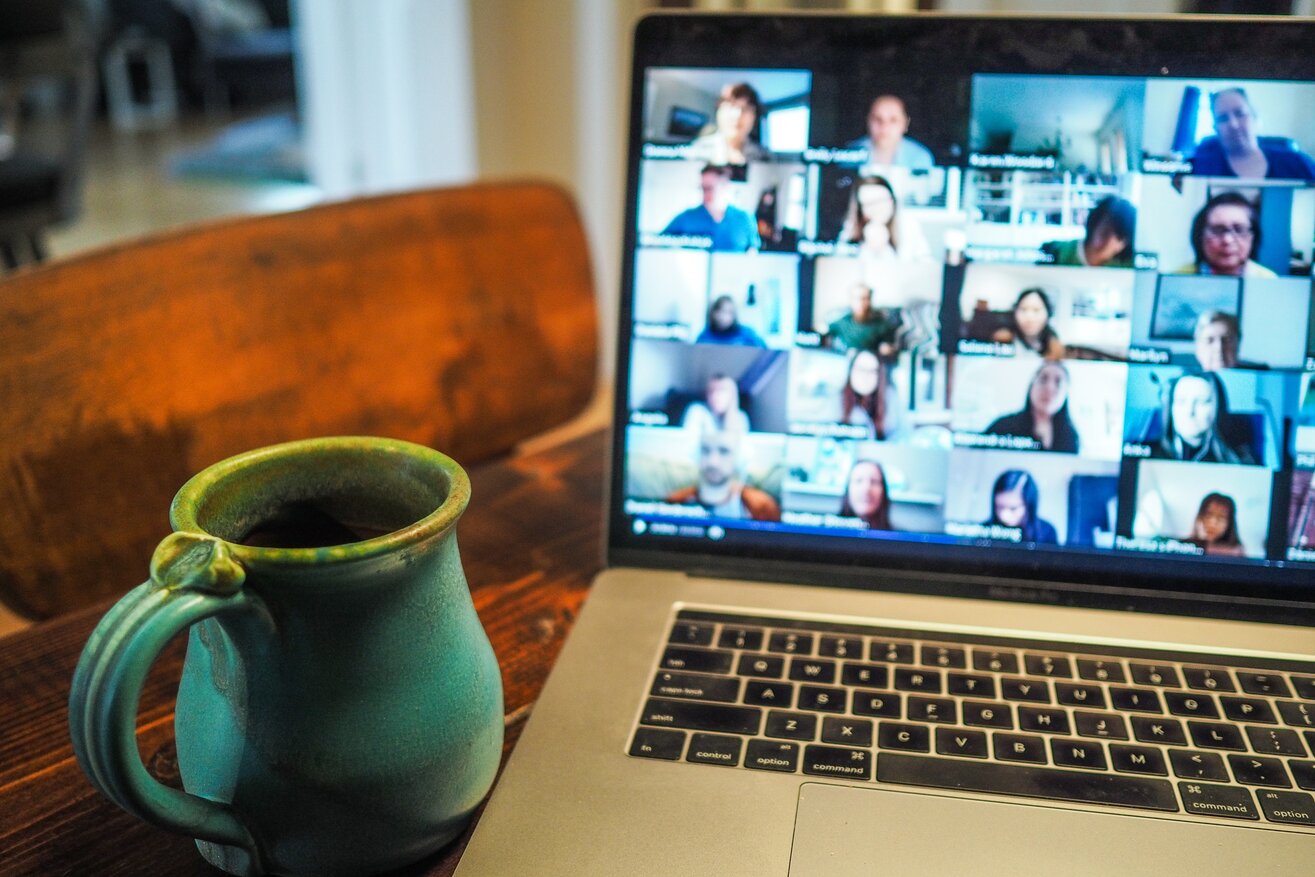The impact of digital technology on the mental health of our workforce and customers

SJ Leatherdale, Partner and Head of our Healthcare and Life Sciences Practice, and Rebecca Brandwood, Healthcare and Education Consultant, discuss the key points made by guest speaker Professor Sandeep Ranote in their recent webinar on digital technology and its impact on mental health
The Covid-19 pandemic has placed huge demand on the NHS and healthcare services. Whilst under great strain, there has been tremendous perseverance, bravery and agility in play to manage the crisis whilst maintaining continuity of service delivery.
To discuss the impact on the mental health of our workforce and customers over the last few months of lockdown and how the NHS has transformed its mental health service delivery with increased and necessary digitalisation, we recently invited Professor Sandeep Ranote to join us as a guest speaker for a webinar.
Professor Sandeep Ranote is Medical Director and Consultant Child and Adolescent Psychiatrist at North West Boroughs Healthcare NHS Foundation Trust and Clinical Director for Mental Health for Greater Manchester Health and Social Care Partnership. She is now a member of the National Universities UK Mental Health in Higher Education Advisory committee. In 2020, Sandeep also commenced her work as part of the National Mental Health Digital Advisory Board for Xenzone, the UK’s leading organisation increasing access to mental health support through technological innovation.
Here are the key points discussed:
A renewal of collaboration and community
Sandeep began by sharing her thoughts and reflections on the last four months of her personal and professional life. Initially, our reaction focused on the initial immediate disruption response and how to meet new needs, but now we are moving to a time where the focus is on restoration, recovery and reimagining the future. Sandeep commented: “We have to question what has happened. What worked well? What have we learned? What can we harness? But equally, we need to consider what we can leave behind.”
Sandeep particularly explored the power of community in overcoming the disruption and how it has been a collaborative effort in rebuilding solidarity. This period of change has brought about a renewed consideration of compassion and comradery which she sees as key to our recovery from the impact of the pandemic as we move forward into a new future.
Digital transformation: Impact on customers
A critical component of the Covid-19 response by the NHS was the investment in digital transformation. Digital technology enabled mental health trusts to adapt to the lockdown conditions and continue to deliver services to patients through virtual platforms. Sandeep shared with us that the speed of change was incredible, saying: “What would have taken us four years and a lifetime, has taken four weeks.” She explained it was the endeavour of cross-system working, enabled through a complete breakdown of bureaucracy as well as tremendous good will and collaboration.
One of the main challenges mental health providers faced was getting the message out to patients that they should not be suffering in silence. Data has shown that when lockdown was introduced there was an immediate and significant dip in presentations from mental health patients. Whilst fear of contracting the virus was a factor behind this, Sandeep explained there were concerns from patients that they were not worthy of use of health services because Covid-19 became the priority and they did not want to burden the system. In the fight for parity this was alarming, and Sandeep explained how her Trust invested heavily in their communications strategy to make it clear to patients that they equally deserved support.
These strategies took several weeks to take effect, but numbers are now back to pre-Covid levels and in fact rising, bringing forward a new challenge with a great spike in crisis mental health presentations. Sandeep explained this was due to the socio-economic impact of the virus. To address the increase in demand, the sector has used digital technology platforms to deliver multi-disciplinary team assessments, interventions and to communicate regularly with patients, their families and carers.
At the time of the webinar, Sandeep shared with us there had been a staggering 60,000 virtual meetings which have taken place at the Trust since the initial set-up of the system - a number unheard of in such a short time period. Technology has enabled increased efficiency as well as the ability to have a larger reach and, interestingly and not surprisingly, the lowering of carbon emissions due to reduced patient and workforce travel.
Whilst digital technology has been a fantastic enabler during this period, these tools cannot completely replace the previous methods of providing services. For example, there has been exceptional engagement with the student population through chat rooms - however it cannot be assumed digital spaces are the only and best way to provide services for this demographic. Sandeep explained “therapeutic choice is a must” and we should explore all platforms as well as keep the choice of telephone and face to face services. Sandeep went on to add we must be aware of individual needs with an estimation that 30% of patients will still opt for a face-to-face meeting. To embed these practices long-term there must be a deeper understanding and assessment of how to engage effectively with all patients and customers.
Digital technology in the workplace
New working conditions under lockdown have impacted the mental health of the workforce with individuals suffering from ‘zoom fatigue’. For many, working from home has meant there is no clear division between work and relaxation. It is therefore important we consider how we interact in the workplace to support mental health and well-being in a virtual environment. Sandeep advised, “the impact on workforce mental health could be huge unless we prevent it”.
From the information gained over the past few months we now have more evidence from staff experience to create a digital workforce for the future. Interestingly, Sandeep mentioned neuropsychology research has shown it is helpful to have variety at work. She recommended workplaces encourage staff to use a range of different communication methods, saying “it is okay to have a phone call rather than turning to video conference for every meeting and interaction”. We need to be addressing ‘whole-person’ health and well-being by embedding a digital health and safety policy and encouraging colleagues to dedicate time to get outside for some fresh-air. Sandeep proposed “we should be taking a walk during working hours to tackle fatigue”.
In terms of practical actions organisations can take to support their workforce well-being strategy, Sandeep said: “We don’t need to reinvent the wheel when it comes to wellbeing resources. Mind, Rethink and the NHS already provide these toolkits’’. Another key point was we need to be thinking about connecting and bringing people together as a community, not just for business meetings but to share stories and experiences. Importantly, she suggested organisational-wide meetings as well as smaller localised calls for personal engagement.
Long-term impact
Looking further ahead, we discussed some of the key findings from the recently published Centre of Mental Health ‘Covid-19 and the nation’s mental health’ report. The report highlights how the Covid-19 pandemic is likely to lead to an increase in mental ill health in the UK, as a result of both the illness itself and the measures being taken to protect people from the virus. There is a prediction that the socio-economic impact could mean 500,000 new mental health presentations over the next year, including a large percentage of anxiety, depression and PTSD cases.
Sandeep also spoke about the concept of post traumatic growth. Post traumatic growth is taking forward the innovations we have seen from the global pandemic and using these in a positive way. For example, we want to harness the impact a new way of working and delivery has had on productivity, reduction on carbon footprint and flexibility. This is a pivotal point where we have the opportunity to improve the lives of our workforce and customers for the better.
Drawing the webinar to a close, Sandeep concluded her presentation with a quote from Steve Jobs: “It’s not a faith in technology, it’s faith in people”. This really drove the message home: whilst technology is a fantastic enabler, digital transformation cannot succeed unless it is servicing our needs and there is an element of human to human empathy involved.
We would like to thank Professor Sandeep Ranote profusely for taking the time to share her experience and insights around this important conversation.
For more information please contact Rebecca Brandwood or SJ Leatherdale.






